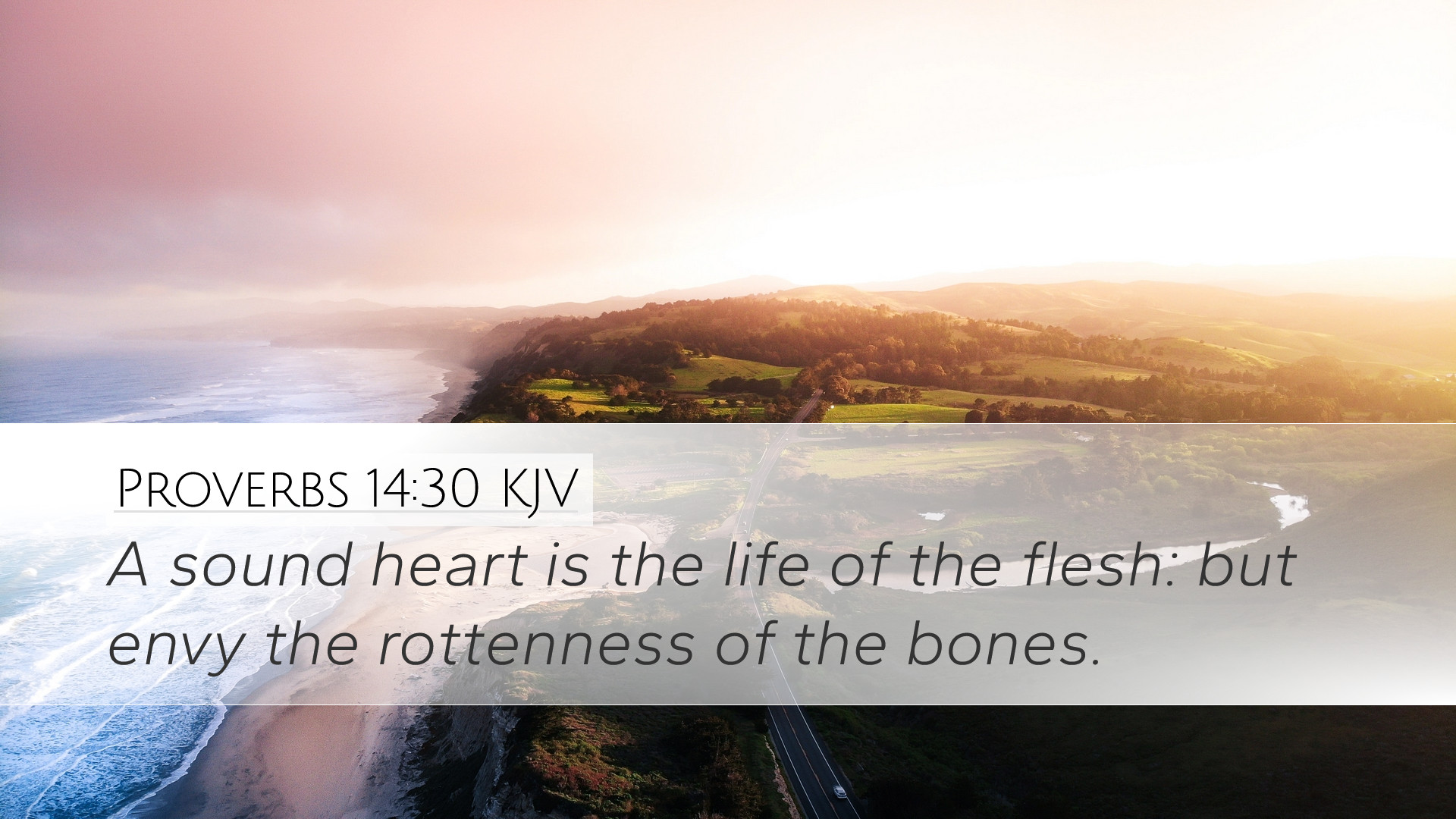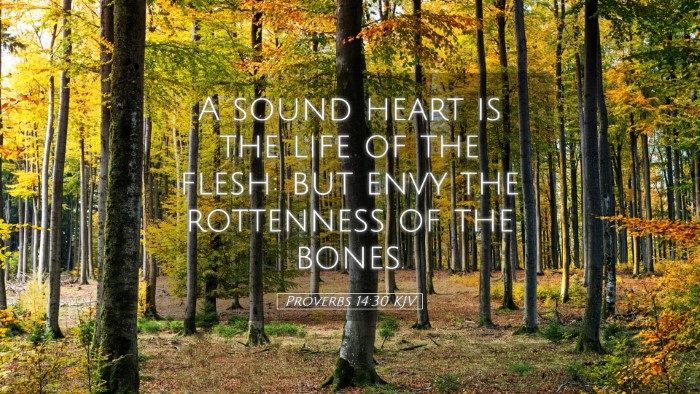Commentary on Proverbs 14:30
Verse: “A tranquil heart gives life to the flesh, but envy makes the bones rot.” - Proverbs 14:30 (ESV)
Introduction
Proverbs 14:30 addresses the vital connection between the state of one’s heart and overall physical well-being. As a passage rich in wisdom literature, it contemplates the emotional dimensions of health and how envy can lead to deterioration not only of spirit but also of body.
Exegesis and Insights
General Themes
This verse encapsulates two polar emotions: tranquility and envy. Through these comparative statements, the Proverbs reveal deep truths about the human condition and its consequential impacts.
Meaning of a "Tranquil Heart"
Matthew Henry emphasizes that a tranquil heart refers to a heart at peace, calm, and free from turmoil or discord. This tranquility stems from trust in God, an assurance of His sovereignty, and acceptance of one's circumstances.
Albert Barnes notes that a calm heart is not just an emotional state but is integrally connected to one's physical health. The Hebrew term used suggests that peace and quietness in one's soul can lead to vitality and robustness in the body. Hence, the overall health of an individual can reflect their internal peace.
The Consequences of Envy
Conversely, the second part of the verse introduces the destructive nature of envy. Adam Clarke suggests that envy is a consuming passion that can corrode a person's inner being. It creates a cycle of discontentment that not only affects mental health but extends to the physical realm, leading to issues such as stress-related ailments.
Envy is described as something that "makes the bones rot," a powerful metaphor indicative of its debilitating effects. Both Matthew Henry and Clarke agree that this decay may manifest as chronic health issues, highlighting the holistic impact of emotional states on our physical condition.
Theological Reflections
The Sanctity of the Heart
The heart is often seen in biblical literature as the center of human emotions, thoughts, and intentions. This verse reinforces the notion that the disposition of the heart is key to overall well-being. Barnes argues that Christians should aspire to cultivate a tranquil heart through prayer, mindfulness, and focusing on the goodness of God.
The Virtue of Contentment
In contrast to envy, the pursuit of contentment emerges as a critical virtue in Scripture. Both Henry and Clarke emphasize that satisfaction and gratitude play integral roles in fostering a peaceful heart. This contentment comes from recognizing the blessings one has rather than longing for what others possess.
Practical Applications for Believers
Reflecting on Proverbs 14:30, believers are encouraged to:
- Develop Inner Peace: Engage in daily practices that promote spiritual tranquility, such as prayer and meditation on God’s Word.
- Cultivate Gratitude: Regularly reflect on blessings and express thankfulness to God to counteract feelings of envy.
- Seek Community Support: Build relationships with others who can support and uplift, fostering a culture free from envy.
Conclusion
Proverbs 14:30 serves as a poignant reminder of the impact our internal states have on our physical health and overall well-being. A tranquil heart, rooted in faith and contentment, is crucial for a fulfilling life, while envy is shown to be a destructive force that hinders both grace and health.
As pastors, students, theologians, and scholars explore this verse, they are invited to delve deeper into the connection between heart and health, seeking to encourage their communities toward peace, joy, and ultimately, a life that is reflective of God’s goodness.


